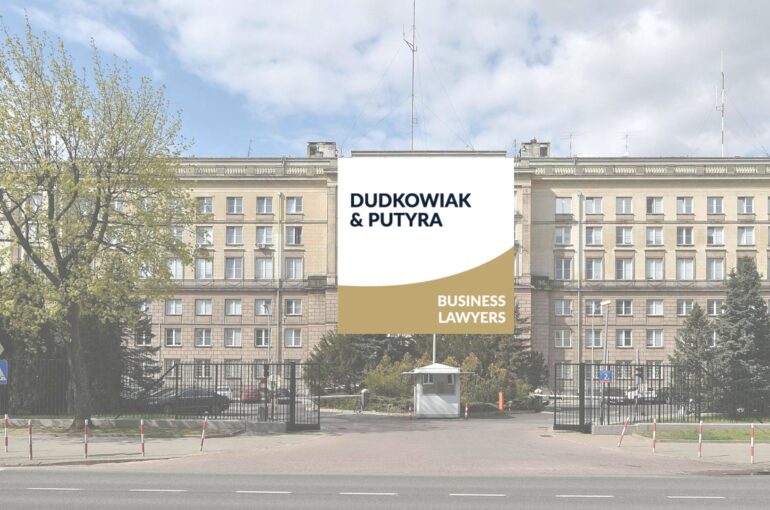Shield 4.0: Changes in public procurement
The Sejm passed another draft of changes in the so called „Sejm” the anti-crisis shield (shield 4.0), which is currently being processed by the Senate. Some of the proposed solutions are dedicated to public procurement. The project explanatory memorandum indicates that their aim is, among others assisting participants in the public procurement market and introducing solutions to counteract the loss of liquidity by economic operators. Below is a summary of the most important proposals for change.
Mandatory annex to the public procurement contract
The crisis shield solutions introduced so far give the parties to a public procurement contract the possibility to conclude an annex to the contract if the performance of the contract was affected by circumstances related to COVID-19. Such an annex can be, for example, the extend the duration of the contract or change the scope of work. The decision to amend the public procurement contract has so far been left to the parties. The contracting authority is not obliged to agree to the annexation of the original contract.
The proposed amendments make a distinction between two situations:
- if the Awarding Entity determines, on the basis of evidence provided by the Contractor, that the circumstances surrounding the occurrence of COVID-19 affect the proper performance of the public procurement contract, the conclusion of an annex to the contract will be mandatory,
- if the Awarding Entity determines, on the basis of evidence provided by the Contractor, that the circumstances surrounding the occurrence of COVID-19 can only affect the proper performance of the public procurement contract, the conclusion of an annex to the contract will remain optional.
Temporary prohibition of deduction of contractual penalties
The project proposes to exclude the possibility for the contracting authorities to make deductions of contractual penalties reserved in the event of non-performance or improper performance of the contract from the contractor’s remuneration or other amounts due to the contractor, as well as the possibility of seeking satisfaction from the security of proper performance of a given public procurement contract.
The exclusion of the possibility of deducting contractual penalties would last for the period during which a state of emergency or an epidemic in relation to COVID-19 was declared, and for 90 days from the date of cancellation of the last remaining state.
The exemption is to apply only if the event for which the contractual penalty is reserved occurred at the time of the declaration of an epidemic emergency or state of epidemics. It does not, however, remove liability for damages.
The aim is to „reduce the financial burden on contractors during the COVID-19 epidemic and consequently increase their financial resources”.
It is worth remembering that during the suspension period there will be no statute of limitations for the ordering party’s claims for payment of a contractual penalty and the validity period of the performance bond will not start and the one started will be suspended. The expiry of these time limits will not be possible earlier than 120 days after the last of the conditions (epidemic or epidemiological threat) has been recalled.
Reduction of the performance bond and partial release of the security
The performance bond is to be reduced to no more than 5% of the total price quoted in the tender or the maximum nominal value of the contracting authority’s obligation under the contract.
Only in certain situations, if it is justified by the subject matter of the contract or the occurrence of risk related to the performance of the contract, which should be described by the contracting authority in the tender specifications, the security may be increased to not more than 10%.
Moreover, the contracting authority may provide in the Terms of Reference for the possibility of partial return of the performance bond after the execution of the relevant part of the contract.
Payment of wages in parts or an advance on wages
In the case of contracts concluded for a period longer than 12 months, the remuneration would be paid to the contractor in parts, after the execution of part of the contract, or the contracting authority could grant advance payments for the execution of the contract.
The percentage of remuneration paid for the execution of particular parts of the contract would be specified by the contracting authority in its content, with the percentage value of the last part of the remuneration not exceeding 50% of the amount due to the contractor, and in the case of granting an advance payment, it could not be less than 5% of the amount due to the contractor.


